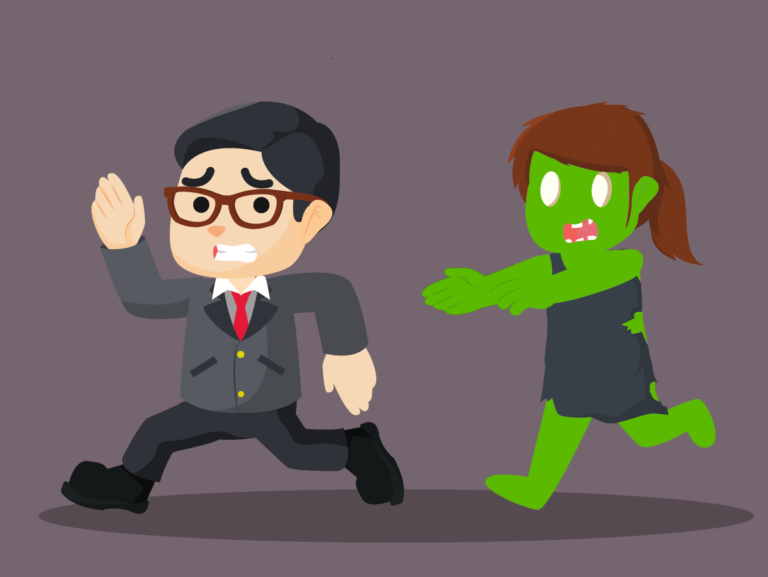If you’re looking at hiring a Business Development Representative (BDR) for your startup, that means you’ve experienced enough growth to need a sales team! Congrats, that’s a huge next step.
There are several things to consider when hiring for this position in your startup. Before we get ahead of ourselves, though, we always remind our startup clients to ask themselves these four questions when they think they’re ready to hire.
Good to go? Let’s dive in!
BDR vs SDR
When thinking about business development reps, the next thing that comes to mind is a sales development representative (SDR). So, what’s the difference?
BDR:
A business development representative will focus on creating leads for your startup. They will be the prospect’s first point of contact and help establish the initial relationship.
Generally, a BDR works in an outbound capacity, thinking creatively to track down new leads and bring them into the company. This can also come in the form of cold calling and all those less-than-glamorous sales aspects.
SDR:
SDRs generally focus on nurturing existing leads; they will be your company’s closers. This includes following up with email and newsletter signups and scoring leads to identify the most qualified to continue.
What does my startup need?
As a startup, your new hire will be the cold-calling BDR for the first while. Once your company grows large enough, and your sales team is creating a large volume of leads, you will likely need to expand.
Then, you can include an SDR in the sales team to help close the large influx of leads from your now-experienced BDR. Research shows that having an excellent SDR or BDR on your team can increase deals in the pipeline by 3-10x while also filtering for more qualified leads.
How do I hire a BDR?
There are a few things to consider when hiring a BDR, but also when hiring in general. If you need a refresher on key aspects of hiring for a startup, we’ve got you covered in this blog post.
When it comes to a BDR, there are certain character traits and strengths that you’ll want to look for, and it can be tough to find the perfect combination. Ideally, your dream BDR is an excellent communicator who has a strong understanding of the market as well as prospect needs.
On top of those hard and soft skills, they will need to be motivated to do the sheer amount of cold calling and hard work that goes with a sales role. It can be a tough niche to find, but your startup’s sales will soar when it’s done well.
Here are the six main things to look for when interviewing potential candidates:
#1: Negotiation Skills
Selling a product will always come down to negotiation. How can your BDR get your product in the door while having it retain value for your startup? If your candidate is too sheepish to work through a negotiation process, they aren’t the right fit for the role.
#2: Communication
A lot of negotiation comes through communication skills, but that isn’t the only type of communication your BDR will need. They must be charismatic and personable, follow up with clients, and maintain relationships — not just when closing a deal but also afterwards. An excellent communicator is an absolute must for a BDR role.
#3: Adaptability
Sometimes closing a sale requires bending over backwards and trying new strategies. Your BDR needs to be adaptable when dealing with clients, especially when hearing the word “no.”
#4: Creative thinking/problem solving
Hand in hand with adaptability is problem-solving and creative thinking. Does your client have a unique issue? Can your new BDR find a way to leverage your solutions and products to help that client find success? When sourcing leads, they will also need to think of different routes and ways to find potential clients — sometimes in a highly competitive and saturated market.
#5: Humility/Empathy
A lot of sales is being able to relate to a client. You don’t just want to woo them; you want to understand their pain points and honestly figure out how your product can help them. A great BDR will be able to listen to what the client is saying and empathize with them to find the best possible solution. As Revenue Grid says, you want a BDR “that stays a step ahead of the prospect’s needs.” To do that, they need to be able to put themselves in the client’s shoes and think as they do.
#6: Drive
Finally, you want someone who is driven. A BDR role is a go-getter role. They have to be willing to put in the work — from cold calls to follow-ups — to close that deal. It’s no secret that sales roles can be a grind. Your task is to find someone who can handle that.
Pro tip: if you’re more of a podcast person and want to listen to a little bit of BDR hiring inspiration on your way to work, check out this podcast episode from Bowery Capital. They chat with David Aronica, the Business Development Manager at Splash, about hiring your first BDR – from what to look for and where to find them to mistakes to avoid during your search for the perfect candidate.
Where do I find a BDR?
A BDR is generally thought of as an entry-level sales position. That means you’ll look at candidates with little-to-no experience and maybe even fresh out of school.
In some ways, this can benefit you — they’ll hopefully be eager to cut their teeth in the world and prove their capabilities. You can easily target university job fairs and campuses for hiring campaigns.
However, because the BDR role is creative and charisma-driven, you can also find a talented BDR candidate nearly anywhere. Don’t be afraid to think outside the box for hiring.
If you’re looking for some unique channels, discover our five recruitment marketing hacks to attract diverse talent.
How should I pay them?
If you’ve been with us for a while, you already know that we’re huge fans of pay transparency (and not just as a buzzword!). With a BDR, the pay structure can be a complicated beast to tackle — especially as a startup with minimal wiggle room in the budget.
Generally, sales roles will combine a base salary with some kind of commission and benefits package. How you choose to do it, however, is up to you. The most important thing is that you’re upfront with your structure, its potential minimum and maximum, and other constraints surrounding it. It’s important to understand what you need your new BDR to deliver, within what time frame and with what resources.
Here are a few suggestions of different structures from Janek Performance Group to get you started.
Where do I start?
While it may seem complicated at first, hiring a BDR is not much different than hiring for other roles in your startup. You want to follow all the same best practices, including building candidate personas, writing excellent job descriptions, following good interview protocol to reduce bias, and closing in on the top talent for your role.
If you’re struggling with hiring at any time or are worried you might misstep bringing in your first sales hire, we are always here to help! Good luck out there.







